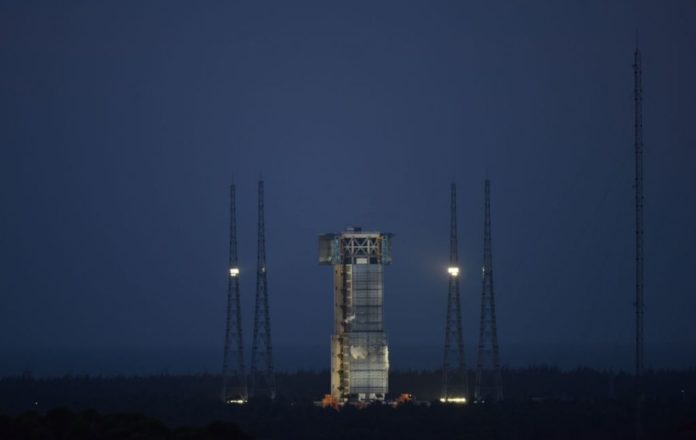China’s Tianzhou-2 resupply mission propelled on Saturday evening, Beijing time, carrying food, equipment, and fuel along with other spaceflight essentials – food, equipment, and fuel.
Tianzhou-2 took off into space aboard a Long March 7 Y3 rocket from the Wenchang launch site on the tropical island province of Hainan.
The mission was originally planned to launch earlier this month but was delayed “for technical reasons”, according to authorities.
- Scientists in Fear of This New Predator From Red Sea Eating Native Species in Mediterranean
- Does This Mean We Stopped Being Animal and Started Being Human Due to ‘Copy Paste’ Errors?
- The One Lifestyle Choice That Could Reduce Your Heart Disease Risk By More Than 22%
- Aging: This Is What Happens Inside Your Body Right After Exercise
- Immune-Boosting Drink that Mimics Fasting to Reduce Fat – Scientists ‘Were Surprised’ By New Findings
The launch was pushed back to May 29, with the rocket finally lifting off on Saturday evening.
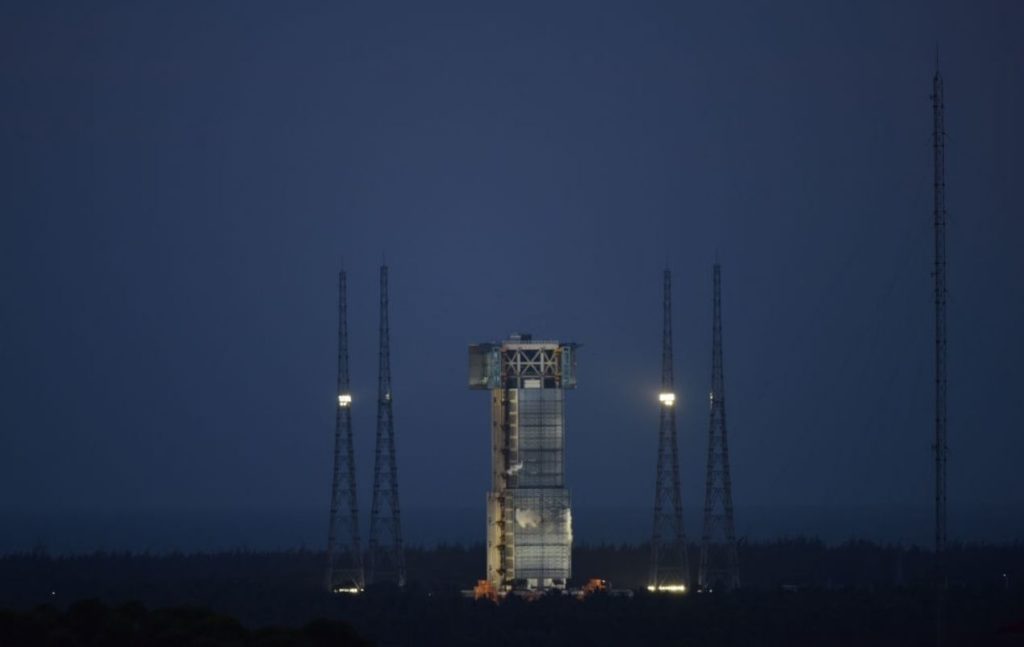
The China Manned Space Agency (CMSA) has confirmed Tianzhou-2 launched at 8.55pm Beijing time (1.55pm BST).
More than 600 seconds into the flight, the spacecraft entered orbit and by 9.17pm Beijing time the Tianzhou-2 deployed its solar panels.
The cargo spacecraft then coasted around the planet until it reached its target – a module of the slowly expanding Tiangong Space Station.
The spacecraft carried supplies for the station’s upcoming crew of three astronauts.
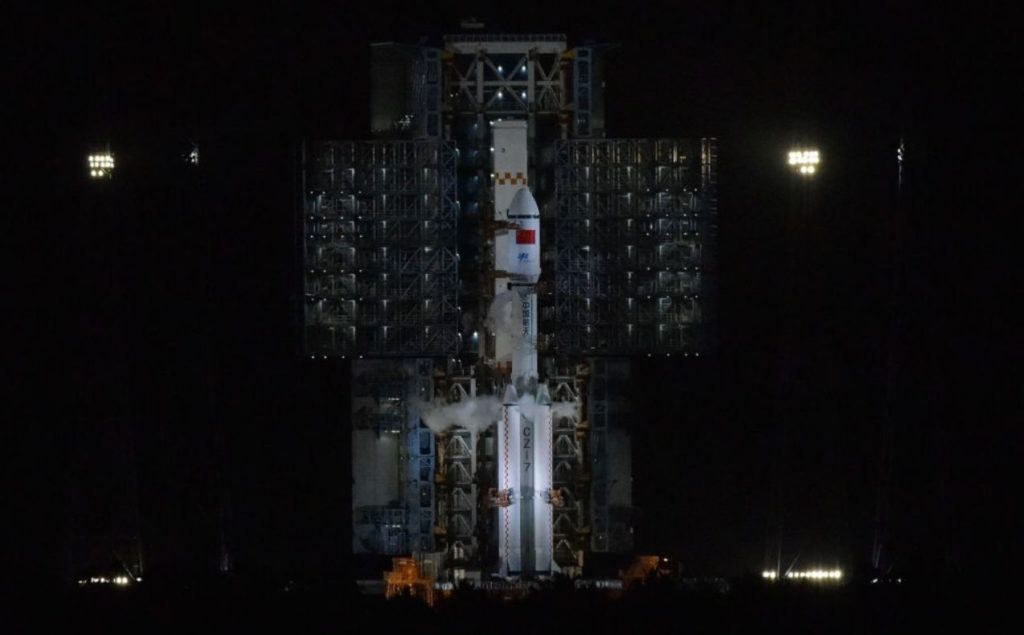
Supplies included foods like shredded pork and Kung Pao chicken.
Hao Chun, CMSA Director, was quoted by the Xinhua News Agency saying:
We will transport support materials, necessary spare parts and equipment first, and then our crew.
According to the CMSA, this was the 371st flight of a Long March rocket – China’s signature family of launch vehicles.
The carcass of a Long March 5B booster rocket recently came crashing into the Indian Ocean after it unexpectedly reached orbital velocity.
Spaceflight experts have criticized the Chinese government for its reckless handling of potentially dangerous debris.
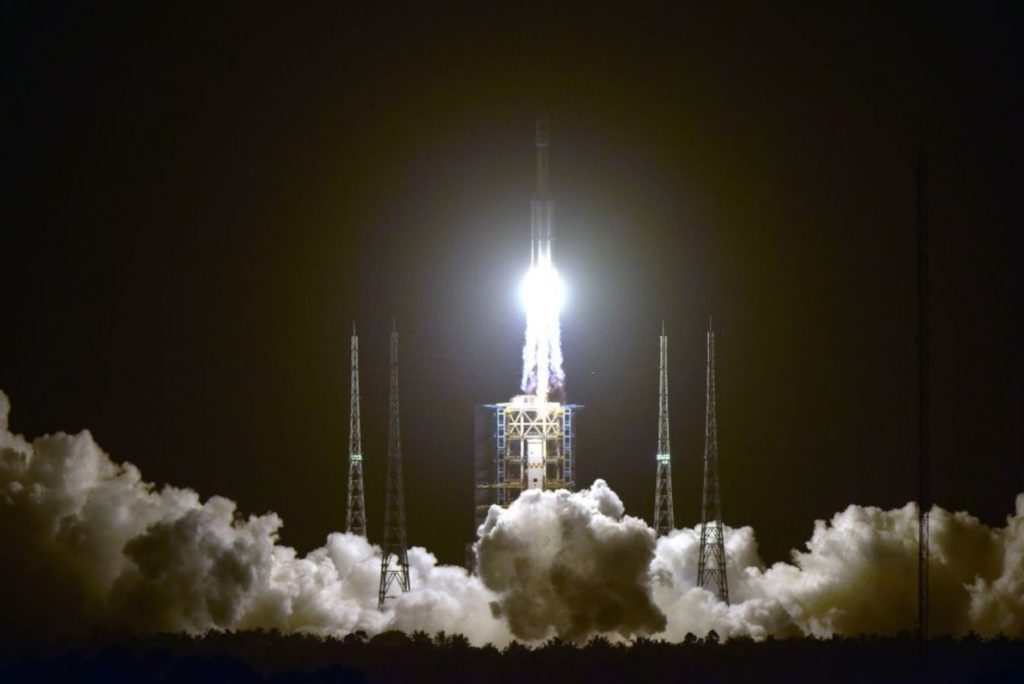
The Long March rocket carried the first module of the Tiangong Space Station.
Some concerns have been raised about the latest launch and whether more rogue debris could come crashing into the planet.
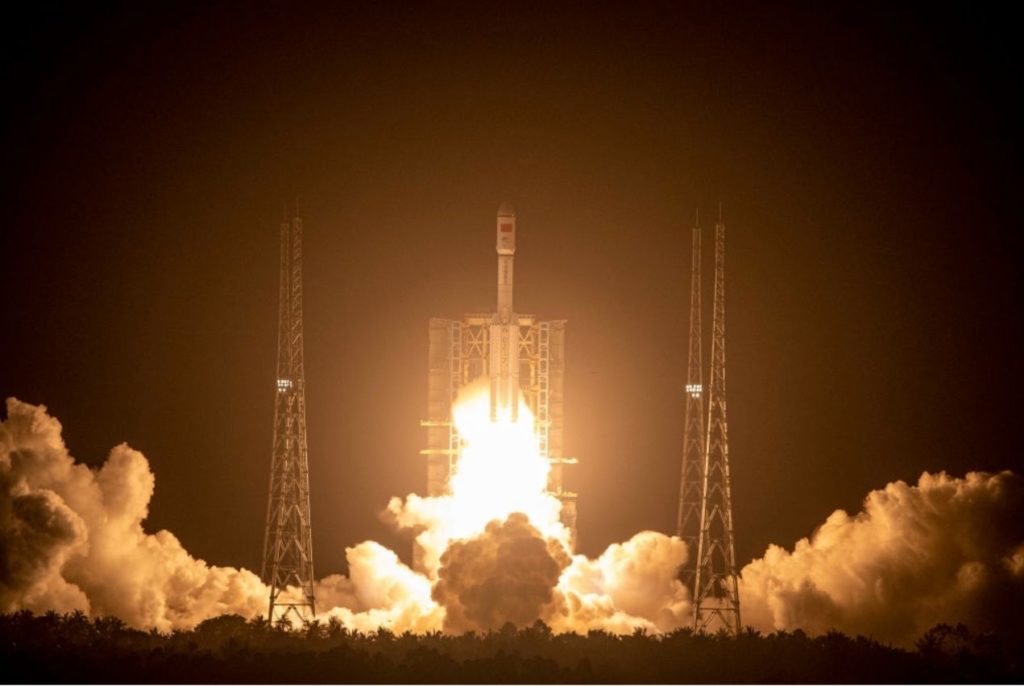
According to Jonathan McDowell, an astrophysicist at the Harvard-Smithsonian Center for Astrophysics, the Tianzhou-2’s rocket debris is less concerning this time around.
The expert predicts the debris will reenter the atmosphere in a week or two.
He tweeted:
The second stage rocket from the CZ-7 is about six tonnes.
Still bigger than I like to see left in orbit to reenter, but much less concerning than the 22 tonne CZ-5B last month.
Somewhat undesirable, but not worth any alarming news coverage in my opinion.
Tiangong, which means “heavenly palace” is China’s answer to the International Space Station (ISS).
China’s space station, however, is much smaller and will only host crews of three astronauts at a time.
- Scientists in Fear of This New Predator From Red Sea Eating Native Species in Mediterranean
- Does This Mean We Stopped Being Animal and Started Being Human Due to ‘Copy Paste’ Errors?
- The One Lifestyle Choice That Could Reduce Your Heart Disease Risk By More Than 22%
- Aging: This Is What Happens Inside Your Body Right After Exercise
- Immune-Boosting Drink that Mimics Fasting to Reduce Fat – Scientists ‘Were Surprised’ By New Findings
The ISS, for comparison, holds a crew of six people on average but has held as many as 11 at a time.
The Chinese station is also incomplete and China will need to carry out 10 launches in total to fully assemble the orbital laboratory.
Tiangong is expected to become fully operational by 2022 and could stay in orbit for at least 15 years.
Just like the ISS, Tiangong will act as an orbital laboratory for experiments that can not be carried out on Earth.
However, some experts have expressed concerns China may also use the space station for classified military purposes.
The space station’s first module, Tianhe or “heavenly harmony” launched in April this year from the Wenchang Spacecraft Launch Site.
- Scientists in Fear of This New Predator From Red Sea Eating Native Species in Mediterranean
- Does This Mean We Stopped Being Animal and Started Being Human Due to ‘Copy Paste’ Errors?
- The One Lifestyle Choice That Could Reduce Your Heart Disease Risk By More Than 22%
- Aging: This Is What Happens Inside Your Body Right After Exercise
- Immune-Boosting Drink that Mimics Fasting to Reduce Fat – Scientists ‘Were Surprised’ By New Findings
Images via Getty
